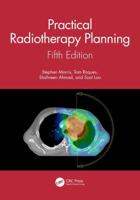Publisher's Synopsis
The aim of MHC Protocols is to document protocols that can be used for the analysis of genetic variation within the human major histocompatibility complex (MHC; HLA region). The human MHC encompasses approximately 4 million base pairs on the short arm of chromosome 6 at cytogenetic location 6p21. 3. The region is divided into three subregions. The telomeric class I region contains the genes that encode the HLA class I molecules HLA-A, -B, and -C. The centromeric class II region contains the genes encoding the HLA class II molecules HLA-DR, -DQ, and -DP. In between is the class III region, originally identified because it contains genes encoding components of the complement pathway. The entire human MHC has recently been sequenced (1) and each subregion is now known to contain many other genes, a number of which have immunological functions. The study of polymorphism within the MHC is well established, because the region contains the highly polymorphic HLA genes. HLA polymorphism has been used extensively in solid organ and bone marrow transplantation to match donors and recipients. As a result, large numbers of HLA alleles have been identified, a process that has been further driven by recent interest in HLA gene diversity in ethnic populations. The extreme genetic variation in HLA genes is believed to have been driven by the evolutionary response to infectious agents, but relatively few studies have analyzed associations between HLA genetic variation and infectious disease, which has been difficult to demonstrate.












